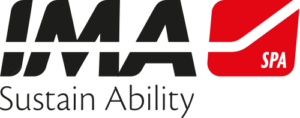
CONTINUUS Pharmaceuticals is a spin-out company from a multi-year collaboration between MIT and Novartis on Continuous Manufacturing. With participation by I.M.A. Industria Macchine Automatiche S.p.A., CONTINUUS specializes in end-to-end Integrated Continuous Manufacturing (ICM), with the application of novel process technologies that enable rapid production of pharmaceuticals at significantly reduced costs and better quality.
Although the pharmaceutical industry excels in the discovery of new therapeutics, it is behind many other industries in its manufacturing methods. Batch manufacturing is an outdated methodology that suffers from a series of “stop-and-start” steps in its production chain.
This includes the isolation and transportation of chemical intermediates (including the active pharmaceutical ingredient, API) across the different unit operations and facilities, where issues with quality can occur. Consequently, lead times are very long, sometimes over a year from raw materials to finished products, and the required plant footprint is very large. It is estimated that the pharmaceutical industry wastes over $50 billion a year in inefficient processes.
To change this outdated paradigm, CONTINUUS Pharmaceuticals is leveraging a novel continuous manufacturing platform called ICM (Integrated Continuous Manufacturing), initially developed at the Novartis-MIT Center for Continuous Manufacturing, a $85 M joint research endeavor.
ICM offers significant advantages over batch processes:
- Quality. Manufacturing quality is significantly improved with ICM. Smaller process volumes allow for more control over our processes, and a plant-wide QbD strategy with continuous monitoring and real-time feedback control ensures that the final product will be maintained within the required specifications (state of control).
- Costs. ICM can reduce the cost of manufacturing significantly. Important contributors include reduced/smaller equipment, improved yields, fewer steps, decreased personnel, and less testing. Reductions range from 30% to over 50%.
- Lead time. By removing unnecessary steps and the inefficient stops and starts typically required for batch testing, ICM can reduce processes that require many months to just 24-48 hours.
- Plant footprint. With ICM, unnecessary steps are removed, equipment is smaller, work-in-process inventory is eliminated, and fewer personnel are required.
- Environmental impact. Higher yields, lower solvent requirements, and efficient solvent recovery systems are characteristic of ICM processes.
- Process development. ICM will provide access to design space not achievable with large volume batch equipment, as some parameters, such as the surface area-to-volume ratio, are greatly increased, enabling certain reactions.
- Safety. With ICM, process volumes are much smaller, and any unstable or toxic intermediates will be produced on-demand, and immediately consumed by the next step.
Relive
Achema
The exclusive tech videos shot during Achema 2024 are now available on our dedicated website
